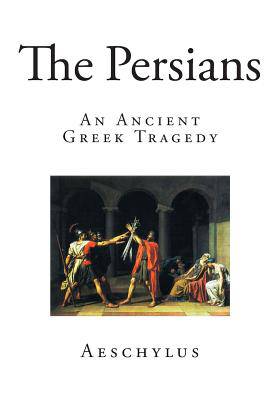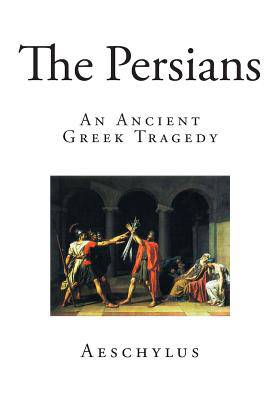
- Afhalen na 1 uur in een winkel met voorraad
- Gratis thuislevering in België vanaf € 30
- Ruim aanbod met 7 miljoen producten
- Afhalen na 1 uur in een winkel met voorraad
- Gratis thuislevering in België vanaf € 30
- Ruim aanbod met 7 miljoen producten
Omschrijving
The Persians
Aeschylus
Translated by Robert Potter
An Ancient Greek Tragedy
The Persians takes place in Susa, which at the time was one of the capitals of the Persian Empire, and opens with a chorus of old men of Susa, who are soon joined by the Queen Mother, Atossa, as they await news of her son King Xerxes' expedition against the Greeks. Expressing her anxiety and unease, Atossa narrates "what is probably the first dream sequence in European theatre." This is an unusual beginning for a tragedy by Aeschylus; normally the chorus would not appear until slightly later, after a speech by a minor character. An exhausted messenger arrives, who offers a graphic description of the Battle of Salamis and its gory outcome. He tells of the Persian defeat, the names of the Persian generals who have been killed, and that Xerxes had escaped and is returning. The climax of the messenger's speech is his rendition of the battle cry of the Greeks as they charged: "On, sons of Greece! Set free / Your fatherland, your children, wives, / Homes of your ancestors and temples of your gods! / Save all, or all is lost!" (401-405).
At the tomb of her dead husband Darius, Atossa asks the chorus to summon his ghost: "Some remedy he knows, perhaps, / Knows ruin's cure" they say. On learning of the Persian defeat, Darius condemns the hubris behind his son's decision to invade Greece. He particularly rebukes an impious Xerxes' decision to build a bridge over the Hellespont to expedite the Persian army's advance. Before departing, the ghost of Darius prophesies another Persian defeat at the Battle of Plataea (479 BCE): "Where the plain grows lush and green, / Where Asopus' stream plumps rich Boeotia's soil, / The mother of disasters awaits them there, / Reward for insolence, for scorning God." Xerxes finally arrives, dressed in torn robes ("grief swarms," the Queen says just before his arrival, "but worst of all it stings / to hear how my son, my prince, / wears tatters, rags" (845-849)) and reeling from his crushing defeat. The rest of the drama (908-1076) consists of the king alone with the chorus engaged in a lyrical kommós that laments the enormity of Persia's defeat.
Specificaties
Betrokkenen
- Auteur(s):
- Uitgeverij:
Inhoud
- Aantal bladzijden:
- 38
- Taal:
- Engels
- Reeks:
Eigenschappen
- Productcode (EAN):
- 9781507838242
- Verschijningsdatum:
- 3/02/2015
- Uitvoering:
- Paperback
- Formaat:
- Trade paperback (VS)
- Afmetingen:
- 178 mm x 254 mm
- Gewicht:
- 86 g

Alleen bij Standaard Boekhandel
Beoordelingen
We publiceren alleen reviews die voldoen aan de voorwaarden voor reviews. Bekijk onze voorwaarden voor reviews.











